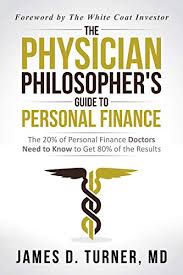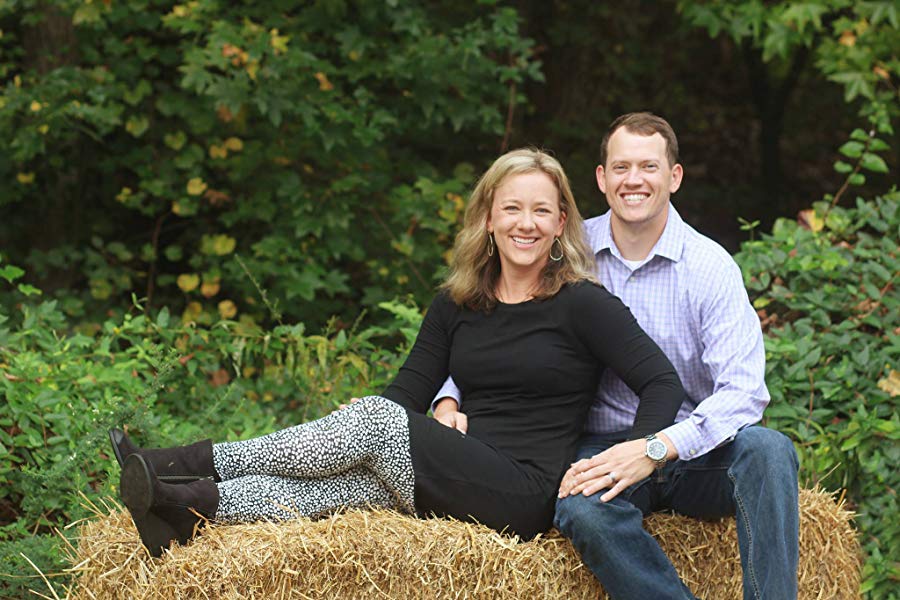
How I Created an Income Stream That Fights Physician Burnout
This post may contain links from our sponsors. We provide you with accurate, reliable information. Learn more about how we make money and select our advertising partners.
Today’s guest on True Doctor Stories is Dr. Jimmy Turner, founder of The Physician Philosopher blog and co-founder of the Money Meets Medicine Podcast.
He’s also the author of The Physician Philosopher’s Personal Guide to Finance.
I've asked him to share about his journey starting a blog and how it's impacted his life.
Enjoy!
1. What inspired you to get into blogging about financial independence?
A few things, really. First, I had a bad introduction to money and the financial industry. I experienced bankruptcy as a kid, which was my first experience with money. As I grew older, I thought debt and purchasing everything on credit cards was normal.
Then, in medical school, I received some bad advice from a Northwestern Mutual salesman that led me to get denied from personal disability insurance. Less than 12 months later, the CEO of the financial advisory firm that my medical school asked to come and talk to us was thrown in jail for fraud.
So, to say I had a bad start with money would be a bit of an understatement.
Yet, I still didn’t have my personal finance “enlightenment” until my fellowship in regional anesthesia. At that point, it all started to click, and I started having conversations with a lot of residents about the topic.
Despite what was already out there in the personal finance blogosphere and podcast world, the doctors I talked to remained financially unaware.
Marrying this idea with the physician burnout epidemic, The Physician Philosopher blog was born in November of 2017.
The purpose of my blog is to help physicians practice because they want to, and not because they have to due to financial constraints. Fighting burnout with financial independence is what I teach.
2. How did you get started?
As mentioned above, I started The Physician Philosopher blog in November of 2017. A little more than two years later, I am also starting the Money Meets Medicine podcast, which I will be co-hosting with Ryan Inman.
I started the blog by reading tutorials, and then I dove in head first and haven’t looked back.
3. What was your biggest motivation for growing your brand?
Honestly, I wanted to spread the message of the blog. The more people I talked to – both in real life and through the blog – I realized that the message was resonating. The relationship that doctors have with money is a two-edged sword.
Their financial decisions can either trap them in a lifestyle that they cannot afford and keep them stuck in a job that they don’t love, or they can use money as a tool to find financial freedom and to pursue Partial FIRE.
4. Biggest struggles with running the business?
The biggest struggle with any new blog is getting traffic. I’ve written for three days per week for over two years and for the first year, I’d be ecstatic if a couple hundred people read a post.
Yet, this wasn’t sustainable. The readers were not magically coming to the blog. It turns out that promoting your blog is just as (or more) important as writing good content.
Then, I had better numbers in terms of traffic, but the blog wasn’t earning any income. As a physician, if a side hustle doesn’t earn income, there is a high likelihood that you will abandon it in lieu of other things – like working more shifts that pay well.
5. How do you balance everything with your personal life?
There are three main keys.
First, I married a saint. That’s a huge help. My wife works full-time, too, but we have found a good balance that allows us to take care of our three kids while we both work and I pursue my side-hustles. And, we still make time to spend together and to go on date nights.
Second, my side hustles have become my passion. They are truly what I enjoy doing, and do not feel like work. Where I used to watch a sporting event with downtime, I am now putting headphones on, listening to music, and hammering out a blog post for The Physician Philosopher. It is amazing how much time we get back when we stop watching TV.
Third, I am big on two things to help me separate superficial work from deep work: To-Do lists and batching.
I block time on my schedule to get certain things done, and then I put my phone on silent and work hard for that allotted time. If something comes up that I need to take care of, I simply add it to my Google Keep app for later when I’ve set aside time to work on that area of my life.
 6. Have any of your streams of income become completely passive?
6. Have any of your streams of income become completely passive?
Yes. The most passive income stream I have is from my book, The Physician Philosopher’s Guide to Personal Finance. I earn over $1,000 per month from the book and don’t have to do any additional work on it at this point.
I’ve considered writing another book because of how nice it has been to have that completely passive income stream coming in each month.
Other less passive forms of side hustles include The Physician Philosopher blog and the new Money Meets Medicine Podcast. While both of those endeavors require a lot more work, they also both generate a higher amount of income.
7. How has the income from The Physician Philosopher impacted your family life?
The income from The Physician Philosopher has been extremely helpful. In 2019, I made more from the blog than I did as an anesthesiology resident. Passing that number felt like a milestone given the amount of time and work that I’ve put into the blog.
Also, we hate budgeting – and prefer to do what we call Backwards Budgeting – we now have more extra money left over each year due to the blog income.
Going forward, we anticipate that we will give ⅓ away, save ⅓ for vacations/travel, and use ⅓ to pay off our mortgage early.
8. In what capacity are you still practicing medicine and for how long?
I am still full-time at this point, though I work in academics. I take 6-9 weeks of call per year, but also get a full week off following each week. In the end, this averages out to about a 4 day work week while being full-time and earning what I consider to be a very good salary in academic medicine.
With each passing year, I think more and more about going truly part-time. If the personal finance curriculum I am creating at Wake, and the blog & podcast continue to take off, I’ll likely go to three days per week some weeks.
9. What piece of advice do you have for physicians who are considering pursuing other sources of income?
My biggest piece of advice is to know that very few things are truly “passive.” Most decent sources of income usually require a steady amount of work up front. While things may become more and more passive with time, having the expectation that it won’t be early is important.
In addition to that, most businesses face a point where you can either keep pushing (despite the lack of progress) or give in.
In the blogging world, it is very common for people to give up after about 10-12 months of blogging when people find out how much work it requires. Yet, the people that stick with it and blog regularly are the only ones who truly find success.
The moral of the story? Only commit to things you are truly passionate about, and when the going gets tough – remember to keep pushing!
10. Anything else you want to mention?
Side hustles have been really helpful in my battle with burnout. The more income that I receive through my side hustles, the more time I can afford to take away from my main gig. I’ve found that the perfect week for my work-life balance involves working three to four days per week.
Due to this better balance, I really love going to work and look forward to it the vast majority of the time. I encourage you to consider your options, too, if you are feeling burned out or morally injured in medicine.
Financial freedom may be your ticket to both a happier life and to falling back in love with medicine again.
Disclaimer: The topic presented in this article is provided as general information and for educational purposes. It is not a substitute for professional advice. Accordingly, before taking action, consult with your team of professionals.


